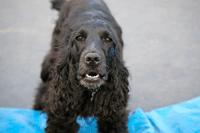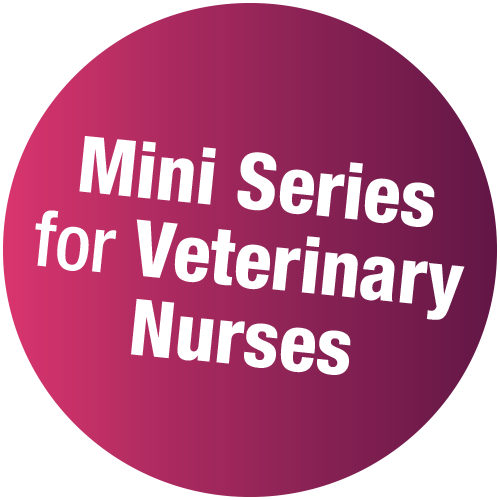MS091 – Understanding and Preventing Canine Aggression – Nurses
£297.00 (+VAT)
12 months access to recordings and course materials is included. Please note that these are webinar recordings and not live events. Full details on how to access the Mini Series will be emailed to you.
- Join Canine Behaviour Counsellor Stephanie Hedges for three 2-hour sessions
- Essential practical tips from our expert tutor
- For veterinary nurses
- Comprehensive notes to download
- Self-assessment quizzes to ‘release’ your 8 hours CPD certification (don’t worry, you can take them more than once if you don’t quite hit the mark first time)
- 12 Months access to recorded sessions
- Superb value for money – learn without traffic jams or rota hassles
- Watch the the recordings on your iPad
Programme
Triggers and Influences for Canine Aggression
Understanding why dogs show aggression is the first step in preventing it. However the more we learn the more we realise how complex the triggers for and influences over a dog’s use of aggression are. This session will draw on the latest research into canine aggression to explain the complex drives behind it. This will equip you as a veterinary nurse with the knowledge and skills required to prevent aggression both within and outside of the practice.
What you’ll learn:
- What is meant by aggression and why it is important that we understand this
- What the evolutionary purpose of aggression is and how this affects its use
- What the physiological and behavioural differences between predatory and emotional aggression are
- Which physiological and developmental factors influence an individual dog’s future use of aggression
- How current environmental influences affect aggression and how these work individually and in combination
- The current thinking about dominance and dominance hierarchies in dogs
Preventing Aggression through Socialisation and Communication
Prevention is always better than cure and as a veterinary nurse, you are very well placed to advise clients how to prevent aggressive behaviour developing.This session will consider how effective early socialisation and habituation and ongoing social development can ensure puppies grow up to respond to every day and new experiences in a balanced and proportionate way. We will also look at how training simple commands can prevent conflict, and how understanding canine communication can ensure we can spot when a dog is worried by something early so this can be diffused before it escalates.
What you’ll learn:
- The importance of good early socialisation and habituation, and ongoing social development for preventing fear and so defensive aggression
- How training simple commands can prevent conflict and frustration in both dog and owner
- The role of inappropriate punishment in the development of aggressive behaviour and techniques for dissuading owners from resorting to it
- How to read signals that a dog is fearful or feeling defensive, to prevent this escalating to threat or aggression
- Awareness of how human body language can inadvertently mimic dog threat behaviour to trigger defensive behaviour
Handling, Managing and Referring the Aggressive Dog
Although the majority of canine patients are very tolerant of handling and interventions, there will always be times when you will need to handle or treat a dog that is defensively aggressive. The practice is also often the first port of call when an owner is seeking advice for their dog’s aggressive behaviour outside of the surgery. In this final session in the series we will look at techniques for managing defensively aggressive dogs in practice and what advice can be given to owners for aggression in other situations, including how to identify a suitably accredited specialist for advice and support.
What you’ll learn:
- Methods for preventing defensive aggression in practice. These will include modifications to the environment, changes in approach and handling and teaching dogs to feel more relaxed when visiting the surgery
- How to teach dogs to accept interventions and to wear a muzzle without causing distress
- The key legal implications of owning an aggressive dog including updates on the Dangerous Dogs Act and civil liabilities
- How to assess the level of risk and identify key risks that need to be managed
- First aid advice that can be given in practice to prevent deterioration and manage risk
- How to identify an appropriately qualified and accredited canine behaviour specialist for ongoing advice on management or elimination of aggressive behaviour
The price includes all 3 sessions, notes and quiz – 8 hours of CPD
*No traffic jams, accommodation hassles, pet or childcare, rota clashes, locum fees ……….. just great CPD and a valuable ongoing resource.
Course Feedback:
“Excellent introduction to canine aggression and gentle handling practices in veterinary care!”
“I will apply the newly learnt skills to each patient and endeavour to become methodical with how to treat each dog for a better outcome.”
“This course will help me recognise triggers and warnings for aggressive behaviours and some ways of reducing / preventing the aggressive behaviours.”



